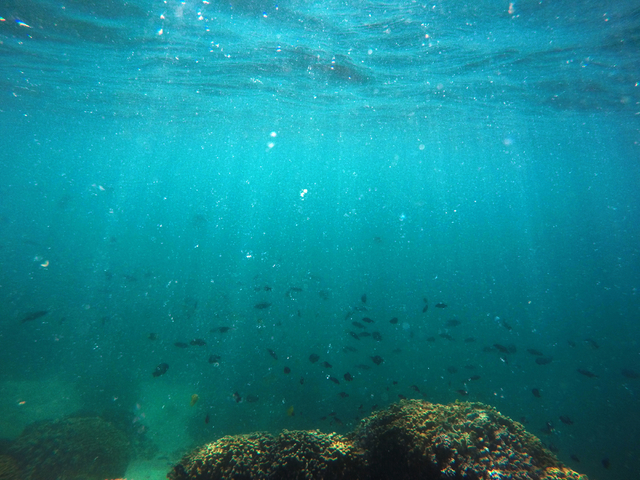Sunscreen’s danger to reefs a concern ahead of Ironman

ASSOCIATED PRESS
Environmental groups are warning about the possible harmful effects of certain types of sunscreen on coral reefs.
KAILUA-KONA >> Environmental groups are warning about the possible harmful effects of certain types of sunscreen on coral reefs ahead of Hawaii’s Ironman competition, which is expected to bring athletes and spectators from all over the world to the Big Island.
The findings of an October 2015 study by marine scientists identified oxybenzone, a chemical found in more than 3,500 sunscreen products, as a potential threat to coral reefs. Scientists determined the chemical induces coral bleaching and damages coral DNA, West Hawaii Today reported.
Several environmental groups have drafted a letter to spread the word ahead of Saturday’s Ironman competition. The event occurs during a crucial coral larval settlement period that occurs after spawning events in late summer.
“It’s all about awareness,” said Megan Lamson, vice president of the Hawaii Wildlife Fund and a co-author of the letter. “It’s newer news, and people aren’t necessarily aware of it.”
Bruce Anderson, the state Division of Aquatic Resources administrator, said last month that as much as 50 percent of West Hawaii’s corals had bleached and died. The coral bleaching was brought on by several factors, but pollution from sunscreen has been identified as a major contributor.
“(Sunscreen pollution) is really very preventable, so it’s something we can stop very easily just by a quick change in behavior,” Lamson said.
Don't miss out on what's happening!
Stay in touch with breaking news, as it happens, conveniently in your email inbox. It's FREE!
State Sen. Will Espero (D, Ewa Beach-Iroquois Point) said he plans to introduce legislation banning the sale of sunscreens containing oxybenzone throughout the state.
“We can control chemicals in the water and those sold here that are harmful to our marine life,” Espero said. “What is important is there are alternatives on the market to the sunscreens with oxybenzone, so we’re not going to be putting anyone out of business per se. If we do a total ban, there will be a new opportunity for anybody selling sunscreen or anybody who wants to make it.”
Diana Bertsch, vice president of world championship events for Ironman, said the organization is also working to spread awareness about the matter. Many community members voiced concerns about sunscreen’s harmful impacts on coral reefs following last year’s Ironman race, prompting the organization to address the issue ahead of the Honu Ironman 70.3 Hawaii event earlier this year.
The same awareness procedures have been implemented prior to next month’s race.
“We send out a newsletter called IRONStuff, and there is actually a one-page flier we include in it about protecting the coral reefs and using reef-safe sunscreen,” Bertsch said.
8 responses to “Sunscreen’s danger to reefs a concern ahead of Ironman”
Leave a Reply
You must be logged in to post a comment.






It’s so mind boggling that such a small amount of sunscreen can cause that amount of bleaching, it does not make intuitive sense. This sounds like environmental activism forcing the public to jump through hoops, perhaps a way to limit our activity. Shaming people and thereby stopping them from safely enjoying the outdoors. More studies need to be sighted before taking this radical step.
Maipono, I don’t like too much environmental activism also but the research and studies have been done on oxybenzone and it does destroys the coral reefs.
That small amount to such a high degree? Just don’t sound right.
It’s not so little. Plus, they tell you to reapply your sunscreen throughout the day. And the ocean currents swirl it around so it goes further.
I still think the dilution factor would minimize this.
…but when one multiplies the sunscreen times 1500 or so athletes, it adds up. The last time I did the Kona Ironman, I recall using a lot of sunscreen before the swim. The reefs on the Big Island look pretty good when compared to those around Oahu. I have no problem with people being proactive in protecting our ocean environment.
Neither do I.
So everybody stop using sunscreen and get SKIN CANCER. Humans must be protected too.